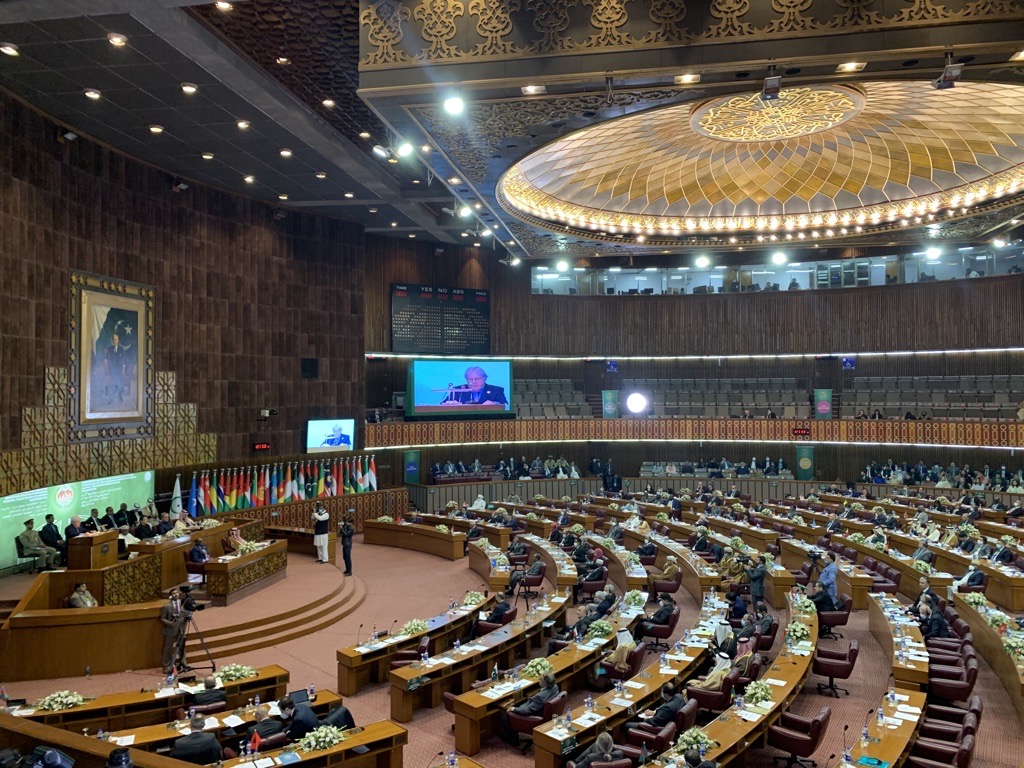Doha has been playing a critical role amid the latest developments in Kabul.
Members of the Organisation of Islamic Cooperation [OIC] pledged to set up a humanitarian trust fund for Afghanistan in efforts to alleviate the suffering of millions of Afghans facing hunger and poverty.
Pakistan’s Foreign Ministry Spokesman Asim Iftikhar Ahmad said the Humanitarian Trust Fund would be set up “under the aegis of the Islamic Development Bank [ISDB] to serve as a vehicle to channel humanitarian assistance to Afghanistan including in partnership with other international actors”.
In addition to the humanitarian trust fund, the 57-member bloc announced a move to launch a food security programme for Afghanistan while promising to coordinate with the World Health Organisation [WHO].
This will allow for vaccines and medial supplies to be provided for Afghans.
According to the Pakistani foreign ministry spokesman, the bloc, together with the IDB, will begin discussions with UN agencies to help establish a roadmap for the disbursement of the much-needed aid.
The move was announced during an extraordinary OIC meeting on Afghanistan in Pakistan on Sunday, attended by members of the bloc including Qatar, which was represented by State Minister for Foreign Affairs Sultan bin Saad Al Muraikhi.
According to Reuters, Afghan Foreign Minister Amir Khan Muttaqi was also in attendance, along with representatives from the United Nations, the United States, the European Union and Japan.
The OIC also praised Qatar’s role in evacuating tens of thousands of Afghans and foreigners from the country since the Taliban captured control in August.
Officials attending the event reiterated the OIC’s commitment to bringing peace, security, stability and development to the crises-hit country.
Qatar, EU agree to evacuate more at-risk people from Afghanistan
The OIC meeting comes amid a worsening humanitarian situation in Afghanistan.
The UN had warned in October that at least 22 million Afghans – more than half of the country – are at risk of facing “acute” hunger during the harsh winter season.
This is the result of drought caused by global warming, a worsening economic crisis as well as decades of war.
The US also contributed to the dire situation by freezing up to $10 billion of Afghanistan’s reserves when the Taliban took over. The International Monetary Fund [IMF] also halted funds to the country.
“Unless action is taken immediately, Afghanistan is heading for chaos,” warned Pakistan’s Prime Minister Imran Khan at the event, as quoted by Reuters.
Officials at the caretaker Afghan government have been engaging with various countries, including the US, EU members and Turkey, in effort to address the situation in the country.
However, the Taliban-led interim administration has yet to be recognised by the international community.
“All must acknowledge that political isolation of Afghanistan is not beneficial for anyone, therefore it is imperative that all support the prevailing stability and back it both politically and economically,” said Muttaqi at the OIC meeting.
Representatives at the meeting warned that an economic crisis would further lead to a larger refugee crisis and would contribute to instability in Afghanistan.
Members of the OIC stressed the importance of enhancing economic cooperation by introducing projects in various sectors – including energy, transport and communications -to create employment opportunities for Afghans.
US envoy ‘concerned’ over human rights violations in Afghanistan
Furthermore, representatives at the meeting urged the interim Afghan government to fulfill its “obligations under international human rights covenants, especially with regards to the rights of women, children, youth, elderly and people with special needs”.
Qatar’s efforts in Afghanistan
Over recent years, Qatar has played a key mediating role between all Afghan parties as well as the Taliban and the US.
Since the Taliban takeover and subsequent collapse of the former Afghan government, Doha has pumped up its its diplomatic role, agreeing to relocate embassies belonging to several Western powers from Kabul in order to allow them to carry out their operations outside the country.
European countries and the US have also held various meetings with the Taliban-led interim Afghan government in Doha as the Gulf state continues to urge the global community to engage with the acting administration.
Following the departure of foreign troops, Qatar sent a technical team to Afghanistan to ensure Kabul airport remains operational while enabling much–needed aid to enter.
The Gulf state continues to facilitate evacuations and provide Afghanistan with humanitarian assistance. So far, Qatar has managed to evacuate at least 70,000 Afghans and foreigners.
Follow Doha News on Twitter, Instagram, Facebook and Youtube







